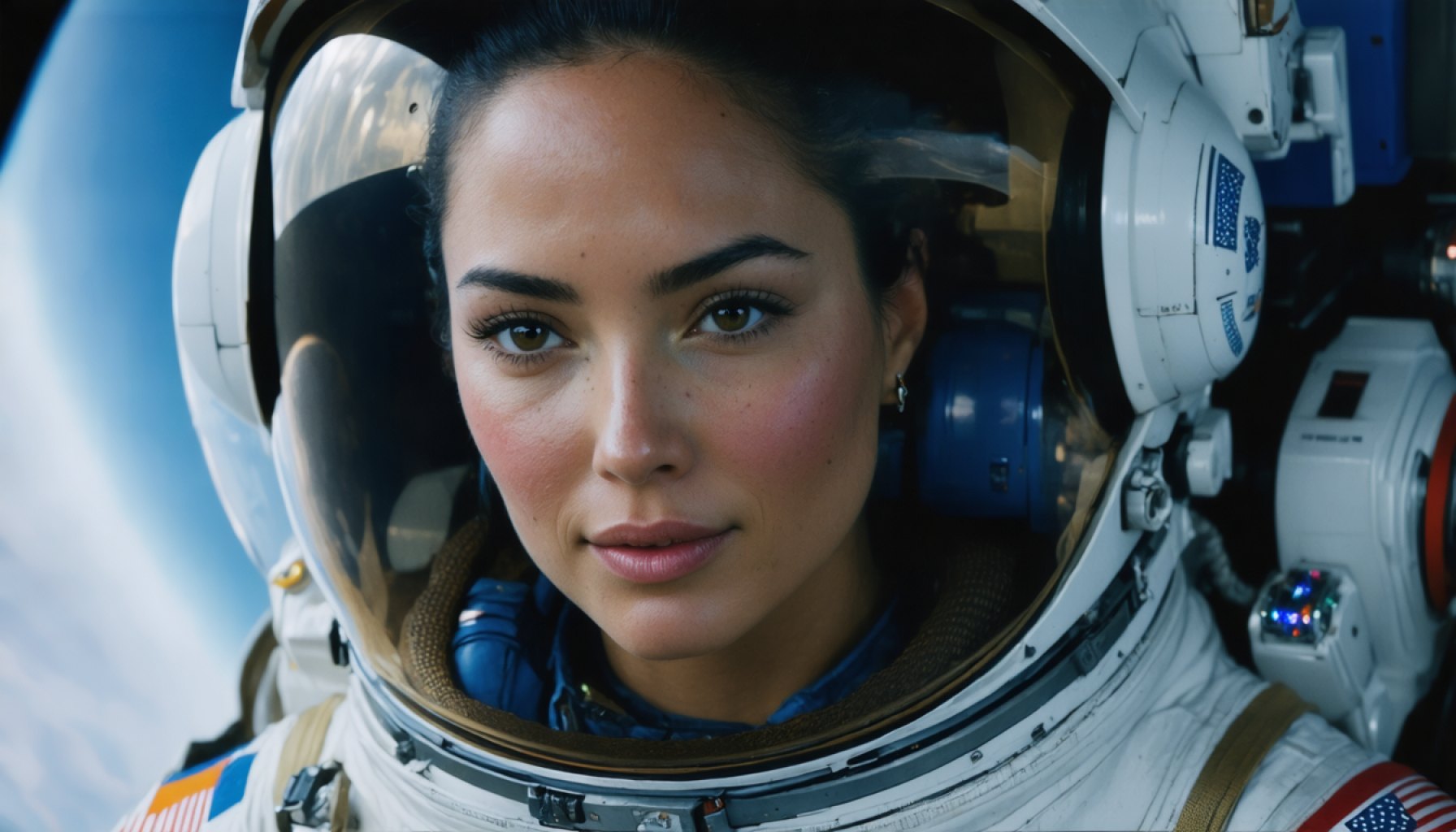- Olivia Munn questioned the value of celebrity space trips during economic hardships on “Today With Jenna and Friends.”
- The all-female crew journey, organized by Blue Origin, includes Katy Perry, Gayle King, and Aisha Bowe.
- Munn critiqued the trip as a luxury experience rather than a significant scientific mission.
- The venture highlights the contrast between space tourism costs and everyday financial struggles.
- Munn raised concerns about the environmental impact and societal priorities of space tourism.
- Her views encourage balancing innovation with addressing global needs and resource allocation.
Olivia Munn’s bemusement resonated with viewers as she candidly questioned the merit of sending celebrities to space amid global economic struggles. The conversation unfolded during a recent episode of “Today With Jenna and Friends,” where Munn and Jenna Bush Hager dissected Blue Origin’s bold move to send an all-female celebrity crew into the cosmos.
This upcoming journey, set against a backdrop of soaring egg prices and financial uncertainty for many, sparked a debate on priorities. Munn, known for her keen awareness and outspoken nature, was unflinching in her critique. To her, the trip seemed more akin to a luxury theme park ride than a meaningful scientific endeavor. Her skepticism spotlighted the gaping contrast between astronomical sums spent on such ventures and the daily challenges faced by ordinary individuals.
Munn wasn’t questioning the thrill of zero gravity or the allure of witnessing Earth from above. Rather, she pondered the substance behind this star-studded mission. The crew, comprising pop sensation Katy Perry, veteran journalist Gayle King, and former NASA scientist Aisha Bowe, will spend just four minutes floating in space during the entire 11-minute escapade. In that brief time, interstellar glamour meets cosmic curiosity, yet Munn asked, what meaningful change would accompany their descent back to terra firma?
The trip, a brainchild of Blue Origin—a company helmed by Lauren Sánchez’s fiancé, Jeff Bezos—has broader implications beyond its brief voyage. Munn’s reservations transcended the spectacle of celebrity. Her concerns hit on the environmental impact and resource allocation amid pressing terrestrial issues.
As the crew prepares for lift-off, adorned in full glam, Munn’s skepticism serves as a mirror reflecting broader societal questions. What is the ultimate purpose of such ventures, and at what cost to a world still grappling with fundamental needs? Her pointed inquiry lays bare a cultural rift—between the fantastical allure of space tourism and the practical, everyday struggles faced by many.
Munn’s musings are a reminder: as we reach for the stars, we must also remain anchored to the realities of our world. This cosmic sojourn compels us to weigh innovation against equity, challenging us to balance our fascination with the frontier of space with the pressing needs here at home.
Should We Really Be Sending Celebrities to Space Amid Global Challenges?
Exploration Beyond the Headlines: Key Considerations
Olivia Munn’s candid skepticism about celebrity space travel has resonated with many, especially considering the vast economic and environmental challenges we face today. This dialogue prompts us to explore several facets of space tourism and its broader implications. Let’s dive deeper into the concerns, potentials, and overlooked aspects of these ventures.
The Economic Reality of Celebrity Space Travel
Munn questioned the relevance and impact of sending celebrities to space at a time when many are struggling with financial instability. This leads us to consider:
– Cost vs. Benefit Analysis: Spaceflights, especially through companies like Blue Origin, are costly. Each seat on a suborbital flight can cost hundreds of thousands to millions of dollars. Could these resources be better allocated to solving terrestrial issues?
– Job Creation and Economic Opportunities: While the immediate costs are high, the emerging space tourism industry could potentially generate jobs and stimulate economic growth, but this is more long-term. The extent and distribution of these benefits remain uncertain.
Environmental Impact
The environmental footprint of space flights is increasingly coming under scrutiny:
– Carbon Emissions: Rockets release significant amounts of carbon dioxide into the atmosphere, contributing to climate change. In particular, the soot from rocket fuel can affect the ozone layer. More sustainable fuels and technologies are being developed but are not yet widely implemented.
Real-World Use Cases and Industry Trends
– Inspiration and Innovation: Despite critiques, celebrity involvement can captivate public interest, potentially inspiring young minds to pursue careers in STEM. It can also push the boundaries of technology and innovation.
– Shifting Focus to Space Sustainability: The industry is evolving, with a growing emphasis on sustainable practices and resource management in space activities. Companies are exploring more environmentally friendly technologies and efficiencies in rocket launches.
Controversies and Limitations
– Public Perception: Many perceive space tourism as elitist and disconnected from pressing issues on Earth. The symbolic nature of these journeys sometimes overshadows tangible benefits.
– Safety Concerns: While advancements in technology have greatly improved safety, space travel still carries inherent risks. Operational reliability remains a focus for commercial space enterprises.
Pros and Cons Overview
– Pros:
– Drives technological advancements and innovation.
– Inspires educational pursuits in space and science.
– Potential long-term economic and job growth.
– Cons:
– High costs divert resources from pressing global needs.
– Environmental impact through emissions and resource use.
– Seen as elitist and disconnected from everyday realities.
Actionable Recommendations
– Consider the Impact: Before supporting or investing in space tourism, consider the broader implications and ensure they align with your values regarding environmental stewardship and social responsibility.
– Stay Informed: Follow developments in space technology and policy. Being informed allows for meaningful contributions to the dialogue.
– Support Equitable Innovation: Encourage and support innovations that address global challenges holistically, accounting for both technological progress and socio-economic equity.
For more insights into the evolving space industry, visit Blue Origin’s website.
The debate about celebrity space travel isn’t just about the thrill of the journey; it’s a complex interplay of innovation, ethics, and economics—a dialogue worth having as we look to the stars.
